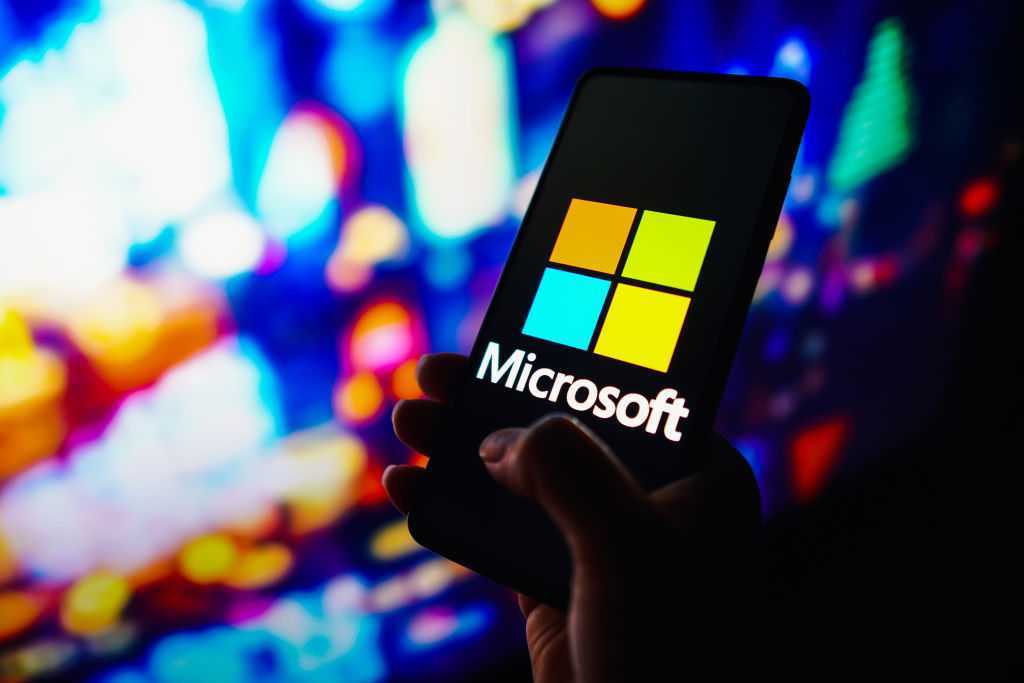Microsoft, Queen of Wall Street and the Magnificent Seven

In the end, the meeting on Thursday, January 11th saw Microsoft’s expected overtaking of Apple. An opening shot of one hundred million raised the capitalization of the giant founded by Bill Gates 2,888 billion dollars, while that of the giant created by Steve Jobs fell to 2,870 billion. The stock market derby between the two big technology companies made for an exciting day on Wall Street, with a head-to-head battle for the crown of the world’s most valuable companies going on until the very end. It’s nothing new. The one between Microsoft and Apple is a challenge that goes back a long way: Apple overtook the Windows maker on the stock market in 2010, thanks to the success ofiPhone, and lasted until the pandemic, when Microsoft briefly took the lead again. At that time the value of the two Big Techs was around one billion, today it is only one step away from 3 trillion.
But in reality, the two companies have been arguing for years. Rivals since the 1980s, when the company founded by Steve Jobs and Steve Wozniak accused Windows maker Bill Gates of stealing the “look and feel” of Macintosh computer software. Apple lost a copyright lawsuit against Windows in the early 1990s, paving the way for Microsoft to dominate the PC market for decades.
This time Microsoft is trying with more solid fundamentals. Because he invested better and earlierGenerative artificial intelligence, specifically 13 billion to become a partner of OpenAI. While Apple pays for being too tied to iPhone sales.
The stock market rewards Microsoft for being the first to ride the wave of artificial intelligence
In 2023, Microsoft shares have gained about 64% compared to Apple’s, which has instead increased by 35%. The former is being driven by the continued growth of its cloud computing division, while its main rivals such as Amazon and Google have seen a gradual slowdown in revenue growth. Furthermore, despite the New York Times’ lawsuit against ChatGPT (a system developed by OpenAI) and the recently announced controls by the European Commission on the company’s activities that risk violating the rules of free competition on the Market breaches The company is also benefiting from widespread optimism about the possibility that artificial intelligence will generate new revenue for its software.
Forecasts show the Redmond company’s revenue was expected to grow to around $61 billion in the latest quarter that ended in December, up around 16% from a year ago.
For its part, Apple has not only been the undisputed queen in terms of capitalization for 500 consecutive sessions, but also in 2023 it was too the first company in the world with a capitalization of more than 3 trillion dollarsbut then recorded months of disappointing results and weak sales. Now investors and analysts fear that demand may not grow again in a way that is crucial and compelling for the market in 2024. Wall Street expects revenue of $118 billion for the quarter ending in December, up less than 1% from a year earlier.
Apple’s trademark, The iPhone is struggling, especially in China. In fact, Apple’s revenue remains dependent on it Smartphones, responsible for over 50% of sales. However, sales of the Apple jewel are no longer growing as quickly as they used to. The iPhone giant is paying for poor US-China relations that have forced it to diversify production in India. Beijing has been waging war on Big Tech since it banned officials from using its phones on national security grounds. In China, there are also the burdens of the real estate crisis and high youth unemployment: two obstacles to growth that have also dampened demand for iPhones. A problem because Almost 20% of Apple’s revenue comes from the Dragon.
Apple wants to compensate for the decline in smartphone sales thanks to its services business: The division brings in 85 billion per year and grew by 20% in the last quarter. An excellent achievement, but jeopardized by the antitrust lawsuit in the USA against Alphabet. A defeat could see Mountain View collapse its lucrative deal with Apple, which received $26 billion (about a third of its services revenue) in 2021 to make Google the default search engine on its devices.
Then there’s the problem with Europe, which has asked the Cupertino giant not to enforce its App Store and leave room for third-party stores. Another significant problem that could reduce the 6-7 billion that Apple earns every quarter in App Store commissions. Even the 9.3 billion quarterly guaranteed business lines, which include the Apple Watch, are at risk of declining Due to problems in the US with the last two models, the Series 9 and the Ultra 2: In this case, Apple is accused of stealing Masimo’s patented technology for measuring oxygen levels in the blood. The sales ban is currently suspended pending a final decision from authorities, a sword of Damocles for the division, which is the third source of revenue for major technology companies.
To forget the difficulties of iPhone and Apple Watch, Apple has decided to focus on the new Vision Pro. Available February 2nd in the US. However, the virtual reality headset is not affordable for everyone (it costs around $4,000) and production will be limited initially, so it is not certain that it will have a significant impact on the budget in the short term.
For analysts, the challenge between the two giants will be decided by artificial intelligence. the technology that will crown the new queen of Wall Street. The Redmond company is ahead with ChatGPT, but its rival from Cupertino can still amaze and the last word has not yet been spoken on the iPhone. In fact, according to experts, Apple boss Tim Cook could introduce a new generative AI that will be integrated into Siri before the summer. the voice assistant that is present on all Apple devices.
The “Magnificent Seven” of Wall Street
But remember Raheel Siddiqui, Senior Investment Strategist at Neuberger Berman, The “Magnificent Seven” vying for the global throne on Wall Street include not only Apple and Microsoft, but also Alphabet, Amazon, Meta, Nvidia and Tesla. The Magnificent Seven, the envy of the rest of the S&P 500, had an extraordinary run last year. In the seven years before the pandemic, their total revenue grew an average of 15% annually, compared to 2% for the rest of the index. Since 2020, these companies have increased their sales by 16% annually.
Even in a challenging growth environment, these heavyweights delivered impressive results last year: Their net income rose 34% versus 1% for the other 493 stocks in the S&P 500, while their overall P/E multiple rose 30% versus 9% for all others. As a group, the Magnificent Seven generated an annual return of 75%, compared to 25% for the S&P 500; Without their contributions, the broader index would have grown just 12%.
Big Tech’s influence on the sector’s performance is evident. Without these seven names, the technology sector would have gained only 15% instead of 50%, the communications services sector would have gained 7% compared to 50%, and the consumer discretionary sector would have gained 6% compared to 33%.





